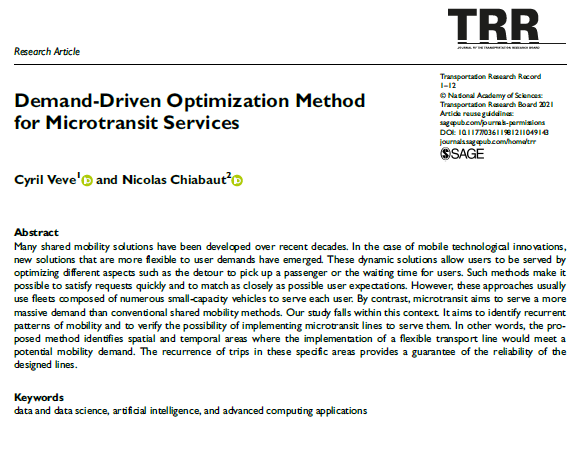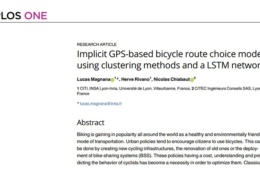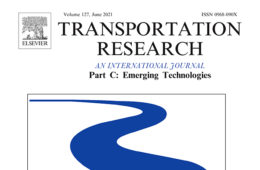Auteur(s) :
Nicolas Chiabaut
Cyril Veve
Many shared mobility solutions have been developed over recent decades. In the case of mobile technological innovations, new solutions that are more flexible to user demands have emerged.
These dynamic solutions allow users to be served by optimizing different aspects such as the detour to pick up a passenger or the waiting time for users. Such methods make it possible to satisfy requests quickly and to match as closely as possible user expectations. However, these approaches usually use fleets composed of numerous small-capacity vehicles to serve each user. By contrast, microtransit aims to serve a more massive demand than conventional shared mobility methods. Our study falls within this context. It aims to identify recurrent patterns of mobility and to verify the possibility of implementing microtransit lines to serve them. In other words, the proposed method identifies spatial and temporal areas where the implementation of a flexible transport line would meet a potential mobility demand. The recurrence of trips in these specific areas provides a guarantee of the reliability of the designed lines.

Sur le même thème
-

PRESSE – Des pistes cyclables virtuelles pour optimiser le passage des vélos
6 juillet 2022En savoir plusA l’INSA Lyon, Lucas Magnana souhaite inciter les citoyens à utiliser davantage le vélo en ville grâce à l’intelligence artificielle. Une thèse encadrée par Hervé Rivano et Nicolas Chiabaut, expert en sciences de la mobilité chez Citec.
-

Implicit GPS-based bicycle route choice model using clustering methods and a LSTM network
22 mars 2022En savoir plusBiking is gaining in popularity all around the world as a healthy and environmentally friendly mode of transportation. Urban policies tend to encourage citizens to use bicycles.
-

Traffic congestion and travel time prediction based on historical congestion maps and identification of consensual days
1 mars 2021En savoir plusIn this paper, a new practice-ready method for the real-time estimation of traffic conditions and travel times on highways is introduced. First, after a principal component analysis, observation days of a historical dataset are clustered. Two different methods are compared: a Gaussian Mixture Model and a k-means algorithm.




